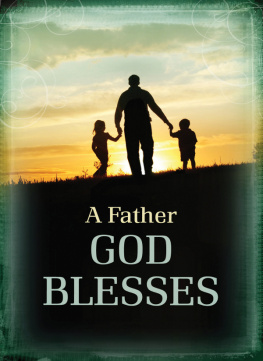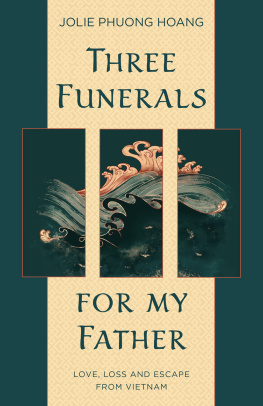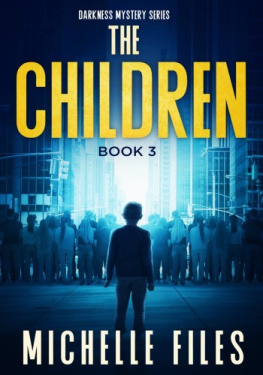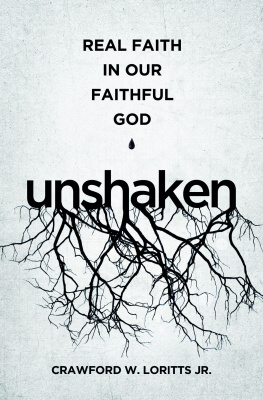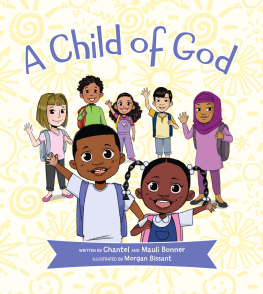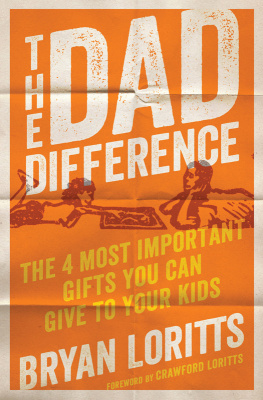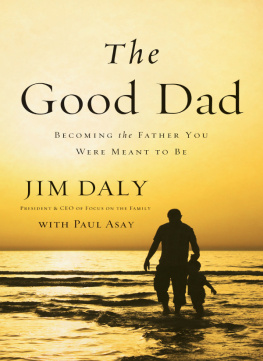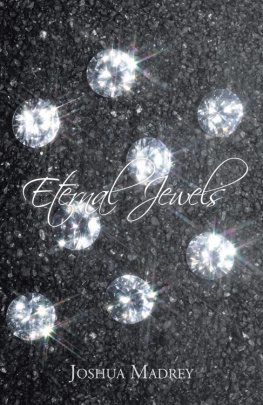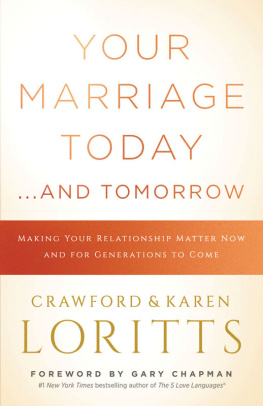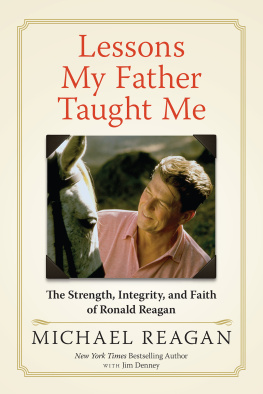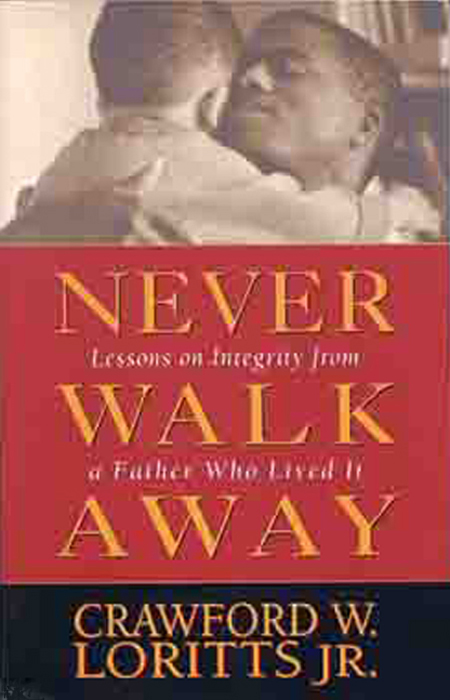DR. RALEIGH WASHINGTON,
Vice President of Reconciliation
Promise Keepers
JOSEPH M. STOWELL, President
Moody Bible Institute
All rights reserved. No part of this book may be reproduced in any form without permission in writing from the publisher, except in the case of brief quotations embodied in critical articles or reviews.
ACKNOWLEDGMENTS
The idea to write this book was planted in my mind more than ten years ago by a dear friend, Bobb Biehl. It took a while, Bobb, but here it is.
I am especially grateful to Steve Wamberg, who was my partner in this project. Thanks for helping me to put my thoughts, words, and ideas into a readable form. Youre a great one!
The team at Moody Press is a joy and delight to work with. Greg Thornton, Bill Thrasher, Jim Bell, and Cheryl Dunlop have been invaluable partners and wonderful servants in helping me to put what is in my heart onto paper. Thank you for your confidence and commitment to me and to this book.
A special thanks to the Legacy team and to my Executive Assistant, Leonard Scott. This has been one of the busiest times of my life and ministry. Our staff members have been especially understanding and supportive in protecting my time and giving me the freedom to write.
My children, Bryan, Heather, Bryndan, and Holly, have provided the passion and motivation to preserve the timeless lessons I learned at my fathers knee. In a very real sense, they are the coauthors of this book.
My wife, Karen, is the visible display and definition of support. Her loving encouragement and willingness to sacrifice time with me not only to write but also to minister to others greatly humbles me. Sweetheart, I love you, and I do not deserve you!
INTRODUCTION
BRING THE
BLESSING HOME
O n July 4, 1995, at 2:10 P.M., the greatest man Ive ever known died. He was eighty-one years old and the grandson of a slave. He was my dad. Who I am, how I love my family, and the choices I make in the daily course of my life have been profoundly influenced by my father. Not a day goes by that I dont think about him. His signature is all over my soul, and it is that signature I will write about in this book. For years I intended to write a book about the lessons I learned in life from my father. I wanted to have it completed and published while he was still living. However, the challenges of a growing family and ministry kept pushing this project into the background. I ran out of time, and Pop went home to be with the Lord.
Yet I believe that this was the way it was meant to be. Despite his boldness and strength, my father, paradoxically, was a very private person. He was a bit embarrassed by public recognition. He would much rather get the job done quietly than spend time talking about what he had done. He lived for his family and had an eye on the future. He wanted his children and grandchildren to be the visible display of who he was, how he lived, and what he believed, and he made the personal sacrifices to make that dream a reality.
This book is not a biography but a monument to one mans influence on succeeding generations. Its about character, strength, and, most important, hope. Its about picking up the mantle from those who have gone before us, embracing their success and not allowing their imperfections and failures to restrict our development, but rather to fuel our determination to do better.
Life is not determined so much by failures and successes as by our perspective on those failures and successes. Wherever we have Gods gifts of perseverance and commitment, we have hope.
And we all do fail. Several years ago I had a less-than-delightful confrontation with our younger son, Bryndan. One morning, just before I took him and my older daughter, Heather, to school, I thought there was evidence beyond a shadow of a doubt that he had blatantly disobeyed me. I put the hammer down. I came down really hard on him that morning. After I had dropped him off at his school, my older daughter said to me, Dad, you were absolutely wrong about Bryndan. In fact, he didnt do what you thought he did. She explained to me what had happened, and I realized that I was totally wrong.
I had to go and apologize to Bryndan. I took him out of his classroom to do it. When he came home after school that evening, I profusely apologized to him again. I confessed that I had made a judgment, but my judgment was wrong. I didnt have all the facts. I thought I knew what was right but, as his dad, I failed. I was wrong and I asked him to forgive me. He hugged me and said, Dad, I forgive you.
So youre not hearing from any superhero of fatherhood as I write. Every father knows that there are times when we absolutely blow it. Were not God. Were certainly not perfect. Everybody tells us how we should be, how we should live, and what we ought to do, but we are still imperfect people. We have shortcomings. We have failures. We sin. We dont say things right. We dont do things right. We dont have adequate information. We make bad decisions. Again, its not whether or not we will fail. We will fail; thats a given. Not only that: were going to fail tragically at times. But the issue is what we do with those failures and bitter experiences. Our perspective on them is of great importance. Are we going to allow those experiences to be redemptive in our lives, even monuments of encouragement later on? Or are we going to allow those failures to permanently injure us and keep us and our family in that abyss of what is known as dysfunction?
When I was nineteen, I experienced a painful rite of passage. It almost drove a wedge between my father and me that could have fractured our relationship in such a way that it would have taken years to heal.
In many ways Pop and I are very much alike. We are both very determined (my wife says


